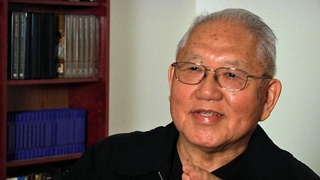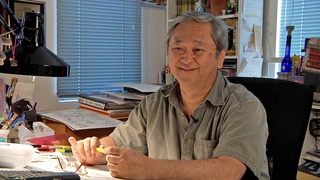Interviews
Band-Aid realization
I have a friend who didn’t realize he was Japanese background until he put on a Band-Aid. The commercial at the time was “It’s skin, flesh tone.” You put on the Band-Aid, you don’t notice it. He put on the Band-Aid, and he realized the color was different. That was the first time he realized he was Japanese American. And since our home was in the middle of a grape field, and it was basically our family and relatives that I came in contact as a child, I really didn’t know until I went to school and became part of the American culture that I understood, more or less, what everything was about.
Date: November 28, 2003
Location: Saga, Japan
Interviewer: Art Nomura
Contributed by: Art Nomura, Finding Home.
Explore More Videos


Dreamed of becoming an Enka singer
(b. 1981) Enka Singer

His clothes are part of his identity
(b. 1981) Enka Singer

Hopes everyone pursues their dreams regardless of race or heritage
(b. 1981) Enka Singer

Considers Pittsburg his home, but always wanted to live in Japan
(b. 1981) Enka Singer


The first concert in the United States (Japanese)
(b. 1981) Enka Singer








